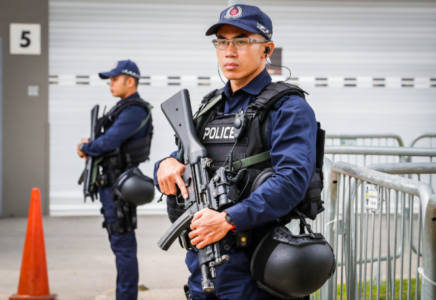New amendments aim to enhance law enforcement’s effectiveness while raising questions about privacy and accountability.
Singapore’s Parliament has introduced a bill that seeks to expand the powers of law enforcement officers, including conducting searches without warrants in more circumstances and enhanced abilities to collect forensic evidence. If passed, the Criminal Procedure (Miscellaneous Amendments) Bill will give police officers greater authority in combating serious crimes such as sexual offences while streamlining investigations.
The Ministry of Law and Ministry of Home Affairs (MHA) emphasized that these amendments aim to protect public safety and improve operational efficiency. However, the proposed changes have also sparked discussions about privacy concerns and judicial oversight.
Key Proposals
Enhanced Search Powers
Under the proposed amendments, police officers can conduct warrantless searches if they have reasonable grounds to believe that a suspect possesses evidence related to an arrestable offence. This change addresses the current requirement for police to prove a suspect is unlikely to produce the evidence upon request, which officials say can delay investigations.
Failure to comply with lawful searches could result in penalties, including up to six months of imprisonment or a fine of S$5,000. Corporations and organizations found obstructing searches may face fines of up to S$10,000.
Additionally, law enforcement agencies will gain powers to search suspects at the point of arrest to remove potentially dangerous items such as weapons or harmful substances.
Mandatory Forensic Medical Examinations
The bill introduces a framework for mandatory forensic medical examinations in cases where evidence, such as DNA samples or bodily swabs, is crucial to the investigation.
Suspects who refuse to undergo these examinations without a valid excuse could face penalties, including imprisonment for up to seven years or a fine, as this would be treated as obstruction of justice. Certain procedures, such as collecting samples from intimate areas, will require higher-ranking officers’ approval and involve safeguards to ensure humane treatment.
Victims, meanwhile, will generally need to provide informed consent for such examinations. Exceptions will apply only in cases where delays could compromise evidence.
New Sentencing for Dangerous Offenders
For repeat offenders of violent or sexual crimes, a harsher sentencing framework is proposed. This includes minimum jail terms and the possibility of continued detention beyond the completion of the sentence if the offender poses a threat to society.
Personal Bonds for Minor Offences
To address concerns about pre-trial detention, the courts will be allowed to release individuals facing minor charges on personal bonds instead of requiring a bailor. This change is expected to reduce unnecessary remand for accused persons who cannot secure bail.
Safeguards and Criticisms
While these changes aim to improve crime-fighting capabilities, concerns about potential overreach and abuse of power have been raised. Critics argue that expanding warrantless search powers could erode privacy rights and increase the risk of misconduct.
MHA has emphasized that safeguards will be in place, such as requiring senior police oversight for sensitive searches and ensuring only qualified medical professionals conduct invasive examinations. However, the ambiguity surrounding what constitutes “reasonable grounds” for searches continues to be debated.
Some parliamentarians have also questioned the lack of judicial review for decisions made under these expanded powers. They caution that overly broad authority could undermine Singapore’s reputation as a business hub known for upholding the rule of law.
Impact on the Criminal Justice System
Proponents argue that the changes will allow law enforcement agencies to respond swiftly to emerging threats and improve Singapore’s crime-solving capabilities. For example, mandatory forensic exams could accelerate resolutions in cases of sexual assault, where evidence degrades over time.
As these amendments are debated, a key challenge will be balancing the needs of effective law enforcement with citizens’ rights to privacy and fair treatment under the law.
The proposed bill represents a significant evolution in Singapore’s criminal justice framework, one that could set a precedent for how other nations address the complexities of modern policing.








